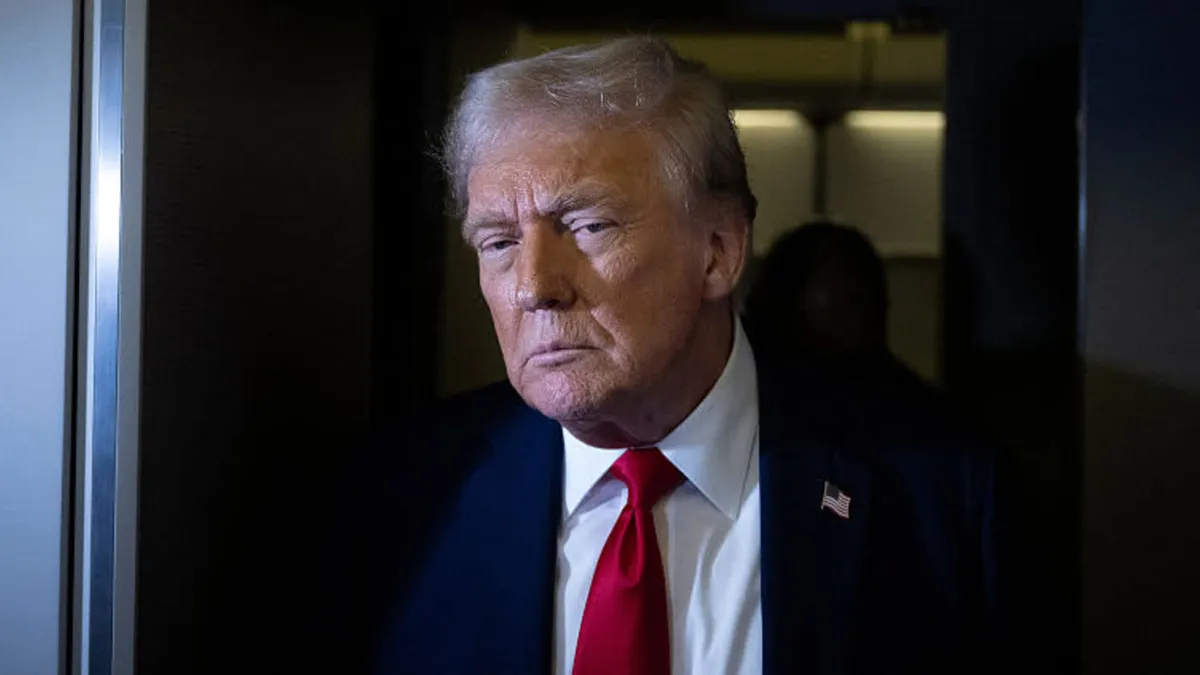
President Donald Trump has announced that his upcoming plan for reciprocal tariffs will encompass all nations, a revelation that adds a layer of uncertainty to an already anticipated trade policy. This announcement comes just days before the tariffs are set to be unveiled, raising eyebrows among economists and investors alike. Speaking to reporters aboard Air Force One late Sunday, Trump emphasized, "You'd start with all countries. So let's see what happens. There are many countries. There is not a cut off."
In a clear pushback against speculation, Trump dismissed the notion that the new tariffs would only apply to the top 10 or 15 trading partners who impose their own import duties on U.S. goods. When questioned by a reporter about these specific numbers, Trump retorted, "Who told you 10 or 15 countries? You didn't hear it from me." This statement suggests that the reciprocal tariffs could potentially affect a wider range of nations than previously thought.
The announcement has had immediate repercussions on the stock market, with all three major indexes experiencing a sharp decline when trading opened on Monday morning. The S&P 500 index has fallen back into correction territory, reflecting investors' concerns regarding the potential economic fallout from another round of sweeping tariffs. The uncertainty surrounding Trump's new tariffs has created a ripple effect, leading to increased volatility in financial markets.
While Trump has stated that the tariffs will target all countries, multiple officials within the Trump administration have indicated that the focus may ultimately be on a select group of nations that exhibit significant trade imbalances with the United States. Treasury Secretary Scott Bessent recently mentioned the "Dirty 15" in an interview with Fox Business, highlighting a specific set of countries that could be impacted. Additionally, Kevin Hassett, the director of the National Economic Council, has pointed out that 10 to 15 countries are responsible for a large portion of America's trade deficit.
As the date of the announcement approaches, investors and policymakers are closely monitoring the situation. The lack of clarity surrounding the reciprocal tariffs plan adds to the existing tension in international trade relations. Businesses and market analysts are urging the administration for more detailed information to mitigate the potential economic disruptions that could arise from sweeping new tariffs.